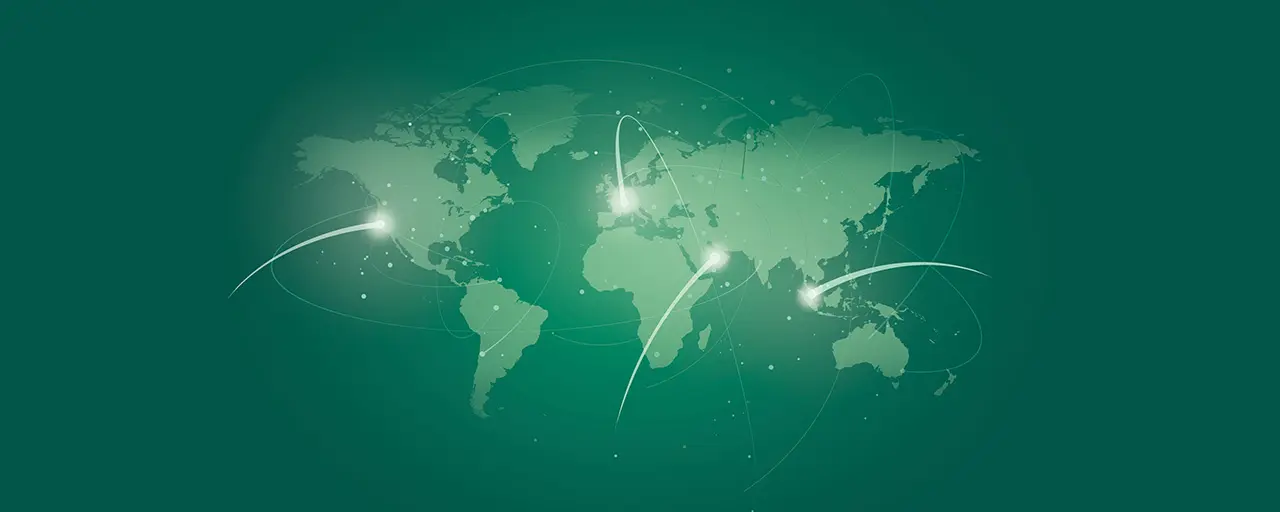
New research examines the implications of conducting business across borders as globalisation retreats
Globalisation has been on the retreat for more than a decade. Since 2008, there has been a slow decline in trade and large drop in foreign direct investment relative to GDP, and the rules and regulations for global business have tightened. Unless unforeseen changes occur, the world likely to continue on this path in the near-to-medium future.
In INSEAD Senior Affiliate Professor of Strategy and International Business Michael Witt’s new paper, De-globalisation: Theories, Predictions, and Opportunities for International Business Research, he considers the political causes and business implications of the breakdown of de-globalisation for international business in the decades ahead. By examining the phenomenon through the prism of two leading political theories - liberalism and realism – he presents a future where:
The reach of multinational companies is considerably reduced
Trade and investments become more limited
The risk and cost of international business significantly increases
European firms succumb to US trade demands rather than face the possibility of a Chinese-led global hegemon
“International business under de-globalisation will look qualitatively different from what we have seen in the past decades,” says Witt. His paper was recently published in the Journal of International Business Studies. “While liberalism and realism theories both predict this to continue, they spell out different mechanisms for de-globalisation, and predict different outcomes of its processes, with implications for the shape of the political economy and international business.”
Liberalist theorists attribute the current process of de-globalisation to two factors: domestic political pressures against interdependence, as seen by the election of US President Donald Trump and the emergence of the extreme right and left across Europe; and the weakening of international institutions such as the WTO.
Realism, on the other hand, sees as the trigger the end of US hegemony and the rise of China as a geostrategic competitor. US GDP has fallen from 289% relative to the next largest economy in 1999 to 83% in 2017, according to World Bank data, while statistics from Stockholm International Peace Research Institute suggest US military spending has decreased from 922% relative to the next largest contender in 1992 to 262% in 2017.
A deglobalised world
Although liberalists and realists would both expect de-globalisation, their views on how this will impact the global economy, international business and future powers are very different.
According to liberalists, a de-globalised world will likely be a patchwork of economic linkages, in the shape of bilateral and regional trade agreements. In the extreme, this could result in the re-emergence of economic blocs with currency and trade restrictions.
In this scenario, multinational companies, especially larger ones, might dedicate more resources to sustaining and expanding economic interdependence. They could choose to become more involved in direct political activities, lobbying policymakers to counteract pressure from anti-globalisation forces
For realists, the probably most likely outcome is a situation reminiscent of the Cold War where the US will lose its power as a global hegemon but remain strong enough to deny China the mantle. This may become a permanent condition if China fails to break through the middle income trap. Or it may be a transitional phase, and over the next decades we could see China emerge as a new global power with the Chinese yuan replacing the US dollar as reserve currency and new, Chinese designed institutions replacing existing ones. In the longer run, other superpowers such as India could emerge creating a multipolar world with multiple economic regimes.
Despite its economic heft, there is little chance of the EU attaining this status, says Witt. Divergent interests of its member states mean that it lacks the ability to act decisively.
How will de-globalisation effect global value chains?
In a future de-globalised world, both liberalism and realism suggest that mulitnational firms will face more constraints on their ability to locate each stage of the value chain in an optimal location.
“Under liberalism the multinational enterprise of the future may still be global in the sense of being active across the globe, but it is likely to have smaller international reach if some countries opt out of economic openness,” says Witt.
Realism theorists also expect a reduction in multinationals’ reach. In their view, value chains would have to fall into one of two spheres of influence, one led by the US and the other by China. Corporations may find themselves having to withdraw from some territories to focus operations in one sphere, resulting in a significant loss of revenues. Given Asia’s dominance in global supply chains, and the likelihood that Asian countries would fall under China’s sphere, the impact on western multinational firms will be significant.
While the US sphere would likely continue to operate under regulations similar to those we have today, the rules of doing business in the Chinese sphere may deviate dramatically. Conducting business between the two spheres, if possible, would become significantly more expensive. Local subsidiaries would operate under a greater degree of autonomy with less access to technology and knowledge of the parent company. Headquarters will likely lose a degree of control while currency restrictions could make it difficult for organisations to repatriate profits home. There is also the risk of asset confiscation, if rivalry turns to hostility.
Whichever theory – liberalism or realism – proves to be more accurate, Witt shows that in the coming decades, de-globalisation is likely to have a significant and expensive impact on multi-national operations. In highlighting the differences between theories, his paper challenges International Business scholars to take a closer look at the interplay of multinational enterprises in political contexts.
